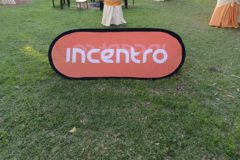When Anthony Otaigbe set out to learn his traditional language of Esan, little did he know that he was going to start a language learning community for African languages. This is the story of Izesan!, an e-learning platform for African languages.
In Africa—where cultural diversity thrives—languages form the heartbeat of each community. Yet, despite their rich historical significance, many indigenous African languages run the risk of extinction due, in part, to the lack of proper documentation. For Anthony Otaigbe, who was born and raised in the US, this barrier is familiar. “Learning my own language was very difficult because there were really no resources out there,” he told TechCabal. “I had to make Herculean efforts, just to learn what I felt I should have known since childhood.” Otaigbe had to go the extra mile to learn his indigenous language—Esan—a language spoken by the Esan tribe in southern Nigeria. “I reached out to my parents, uncles and aunts, asking them questions. I even went as far as calling my grandfather all the way in the village, just to try and talk to him and ask questions and learn more,” Otaigbe added.
But not everyone is as determined to learn their language as Otaigbe was. “So I decided that, you know, not everybody has the fortitude and the resilience to go that far just to learn their language, especially when there’s no economic benefit,” he said. “So, I felt it might be easier for my contemporaries if an app was there to learn these languages.” This was the birth of Izesan!, the e-learning platform that teaches users how to speak different African languages.
Izesan! started off with the Esan language and has grown to teach 15 different African languages including Yoruba, Swahili, Hausa, Igbo, Zulu, Fulfulde, Xhosa, Jamaican Creole, Kanuri, Tiv, and Nigerian Pidgin, amongst others. The app offers interactive lessons using flashcards and other exercises to teach users how to speak different African languages. One of the app’s standout features is its private 1-on-1 lessons, which allows students to schedule personalised learning sessions with professional tutors. Learning sessions are between 1 to 5-hour sessions and cost up to N9,000 per session.
The app also contains a library with short stories in local languages to aid students’ learning. It also offers a community feature which allows users to chat and interact with other members of the Izesan! community.
According to Otaigbe, CEO of Izesan!, the app has seen continuous growth since its launch in 2019, with over 20,000 downloads and over 8,000 registered users, with 10 organic users gained daily. Otaigbe believes that this number is a testament to the necessity of the language learning platform. However, there seems to be a twist in the user demographic. “My assumption was that the demand would be from the diaspora where I come from because we’re the ones that are more removed from our culture,” Otaigbe said. “But when I looked at the analytics from the app, I discovered that most users are in Nigeria.”
A funding problem
Izesan’s marketplace feature uses kọbọ, its eponymous in-game currency which allows users access more attempts on the learning modules and make in-app purchases, such as story translations. However, this feature does not seem to enhance students’ learning as they have to pay for English translations of the traditional languages they are learning. Otaigbe agrees that this might be a stumbling block, but believes that “it all depends on the learner’s willingness to commit to paying towards their learning journey.”
Other features on the language learning platform that seems to be a mismatch include Dweki, a marketplace for African merchandise and an ad promotion feature. These features do not facilitate the learning process of students, which is the primary purpose of the language learning app.
According to Otaigbe, these features were put in place solely for monetisation, as raising funds proved difficult. ”I’m 100% self-funded since 2019. I put about a quarter million US dollars into this, and I think at this point we’re at an inflexion point,” Otaigbe said.
Otaigbe said he is not actively looking for funds but is willing to collaborate with investors who truly understand Izesan’s mission of preserving the authenticity of African languages. “The thing about the funding is that a lot of these foreign organisations aren’t really interested in preserving or revitalising Nigerian languages and that the ones that are don’t want you to profit off of it,” he said. “They’re not really trying to bolster our languages, so we have to figure out how to do it on our own.”
According to him, Izesan! is currently exploring a partnership with the Nigerian government through its language policy to provide indigenous language lessons to primary and secondary school students. The app will be doing this through its new feature—Izesan! for Schools—which launches on 18 May.
Izesan! currently makes money off the private 1-on-1 lessons where users are required to pay between N3500 and N9000 per session. Otaigbe says that the edtech startup is not prioritising the subscriber model right now because he feels the product is not “bulletproof” yet. According to him, the team is constantly working on feedback from the users to make the app better.
Trailblazing with no templates
Apart from funding, Izesan! also faces the Herculean task of forging a new path in teaching African languages without any templates. “Besides funding which has been our biggest challenge, I would say the fact that we’re really the only ones doing this, so there’s no model or roadmap to really follow,” Otaigbe said. “For example, we recently got a hold of the Nigerian Education Research and Development Council’s (NERDC) physical handbook for teaching Nigerian languages some weeks ago, and we discovered that some sections were not in the online version which we formerly had. So now we had to go back and reassess what we had already worked on.“
One language at a time
Eventually, Izesan! aims to teach all Nigerian languages on its app, and the edtech startup is partnering with the Ministry of Education and the National Educational Resource Development Council to launch a grant program called “No Nigerian Languages Left Behind”. The program aims to give a standardised approach to learning all Nigerian languages. “The program is critical because some of these (Nigerian) languages aren’t as developed as the major languages as far as having an orthography like an official writing system,” Otaigbe said.
While Izesan! is locking down the teaching of Nigerian languages, it is also looking to teach other African languages on its platform. But according to Otaigbe, they are taking it one step at a time: “At the moment we are currently working on revitalizing our languages first before we start focusing on other countries.”






















